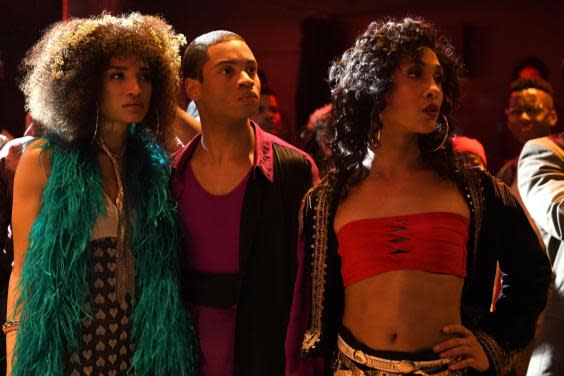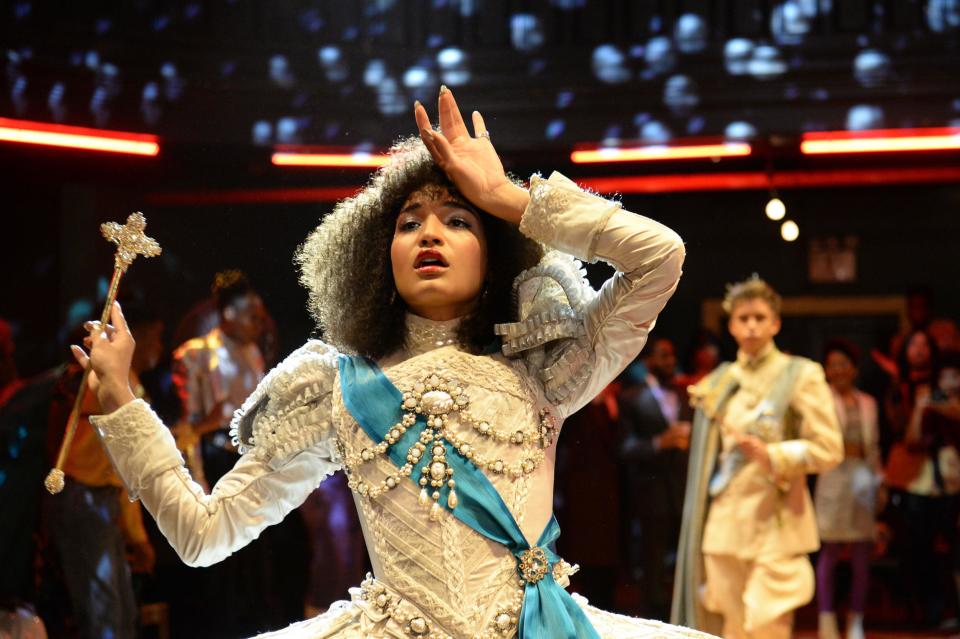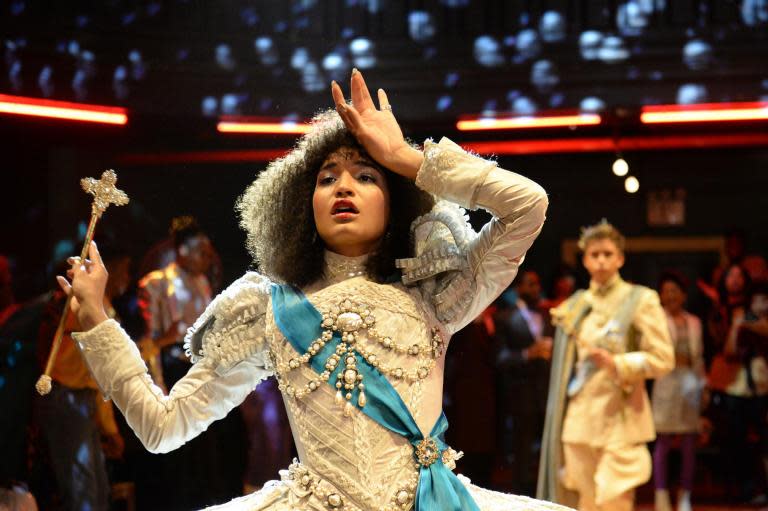Pose: With the largest cast of trans actors in TV history, Ryan Murphy’s ballroom drama is a strut in the right direction
Balls are a gathering of people who are not welcome to gather anywhere else,” explains Blanca (MJ Rodriguez), a HIV-positive trans woman and the “mother” of the House of Evangelista, in the first episode of Pose. “A celebration of a life that the rest of the world does not deem worthy of celebration.”
This Golden Globe-winning drama, which premieres in the UK on BBC2 this Thursday, deems such lives worthy not only of celebrating, but of elevating, excavating, mourning and dissecting. Conceived by Steven Canals, a previously unknown college graduate whose pilot script found its way to Ryan Murphy and Brad Falchuk (Glee, American Crime Story), Pose is a deep dive into the New York ball scene of the late Eighties – an underground subculture in which LGBT+ people (largely of colour) competed, as part of “houses”, in dance and drag competitions. Imagine a dramatised Paris is Burning (1990) – Jennie Livingston’s classic documentary on New York’s late-1980s LGBT+ communities – and you’ll get the gist.
Pose might not have been made, and certainly wouldn’t have reached the mainstream audience that it has, without the involvement of TV powerhouse Ryan Murphy. After making his name with the comedy-drama Glee, he found cult success with his anthology series American Horror Story, and critical acclaim with American Crime Story, whose first season revolved around the murder trial of OJ Simpson, the second around the shooting of Gianni Versace. He also co-created the deliciously snide Feud: Bette and Joan, which chronicled the fractious, cut-throat relationship between Hollywood stars Bette Davis and Joan Crawford. A second season, Feud: Buckingham Palace – revolving around the marriage and divorce of Prince Charles and Diana – was announced, cast (reportedly with Rosamund Pike and Matthew Goode in the lead roles) and then scrapped last year.
Murphy’s signature style is big, brash and baroque – unashamedly so – and Pose is no different. It is a lavish, theatrical sugar rush from the start, with a museum heist in its very first scene that makes Ocean’s 8 look restrained. But it’s profound and sensitive, too, and will probably break your heart. Murphy draws from his own experiences as a gay man in the Eighties, but has also listened and learnt from those who were – and still are – more marginalised.
The show arrives with a departure: Blanca is leaving the House of Abundance, and its “mother” Elektra (Dominique Jackson), to form her own competing house. “When I got kicked out, I was a 17-year-old kid who didn’t understand who I was,” she tells Elektra. “You found me, took care of me. You helped me understand. It’s time I passed that kindness on.” There are now two houses, both alike in grandiosity.
Blanca’s first recruit is Damon (Ryan Jamaal Swain), a gay, 17-year-old boy who was kicked out of his family home with the parting warning: “God will punish you by giving you that disease.” When he meets Blanca, having been sleeping on a park bench for weeks, he finds not punishment but joy, in the form of balls and dance school.
Next comes Angel (a luminous Indya Moore, surely a star in the making), a trans sex worker who wants to find her “Prince Charming”. As a six-year-old struggling with her gender identity, Angel stole a red, patent women’s shoe and was hit by her father – “for stealing, but more so for what I chose to steal”. A relationship, at first transactional and then emotional, with a married white cisgender man called Stan (Evan Peters), seems to offer Angel the life she wants. But Stan – who works for Donald Trump and whose detestable boss (James Van Der Beek) drives a Mercedes, boasts about his bespoke suits and declares “God bless Ronald Reagan” as he does bumps of coke – is no straight white saviour.
That its cast have walked a mile in the red patent shoes of their characters adds another dimension to Pose. The show features the largest cast of transgender actors in television history – and they are no strangers to struggle. Indya Moore’s parents were Jehovah’s Witnesses who saw her gender identity as “evil”. She was in foster care by 14, before finding refuge in the New York ballroom scene. At the age of seven, MJ Rodriguez was desperately praying that she would turn into a girl. Ryan Jamaal Swain’s stepfather was “very, very verbally and physically abusive” when he discovered his stepson’s queer identity. Dominique Jackson fled to the US from Trinidad and Tobago as a teenager after her family refused to accept her as transgender; there, she fell into homelessness and substance abuse, and made a living as a sex worker.
She, too, eventually found sanctuary in the world of ballrooms. “I never thought of myself as beautiful or good looking or anything like that,” Jackson recalled in an interview with website Refinery29, “and here these people were telling me that I was beautiful.”

The cast brought their life experiences to the script, as did Janet Mock, who is a writer, director and producer on the show, and the first trans woman of colour hired as a writer for a TV series in history. It is perhaps for this reason that the show avoids broad strokes, instead exploring the nuances of LGBT+ identities: trans people’s differing ability (or desire) to pass as cisgender; transphobia from within the gay community (“gay, straight, it doesn’t matter, they all think we got psychological issues”), and the complicated development of gender-affirming surgery. The Aids crisis hangs over the lives of Pose’s inhabitants, too, as it did surely every queer person in the Eighties – but it does not define them. Moments that depict the devastating impact of the disease are unflinching, but far from all encompassing.
When MJ Rodriguez found out that she had landed the role of Blanca, “I just bawled, because at that moment I felt solidified,” she told the Motion Picture Association of America. “I felt secure. I felt like, finally, I get to tell my story and the many stories of trans women who are not here today.” There are more trans stories yet to be told, of course. But what a chapter this is.
Pose comes to BBC2 on Thursday 21 March


